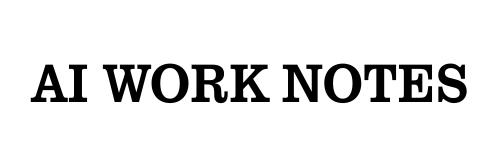Foundations are short stories that suggest conceptual distinctions and tools to engage in conversations and listen, think, or design.
The convergence of mobile social networks, generative artificial intelligence, climate change, the pandemic, the end of the uni-polar global order, the CERN large hadron collider HIggs boson rippling effect in just a few years made our worlds both finite and incommensurate at once. Limited, structurally mysterious, temporal and yet overflowing with perspectives, facts, data, fakeness, and noise. A new but ancient paradoxical reality of finitude and plenty.
What science and philosophy did not resolved in thousands of years of debates is settle by historical contingencies. Transcendental transcendence evaporated. Today, common sense is amplified by AI and drawn to the dazzling production of facts and metadata—facts that shine not only for their finite traceable truths but for their immediacy and reach. The world feels more complicated, and in that complexity, more real and ephemeral. Often we can now do in hours what months ago was beyond our reach.
There are risks, and yet this is a rare moment—ripe for unexpected conversations, new alliances, and paths not yet imagined.
We are linguistic enacting animals capable of bring out worlds and leave a dent in its unfolding events . Logos is a distinctive gift we all share.
We can refine our immediate experience—the phenomenological domain—by shaping logos. Re-establishing meaningful links between lived moments and their symbolic counterparts, the temporal descriptive domains, thereby expanding our capacities to observe, communicate, and coordinate effectively. These temporal descriptive domains play a crucial semantic role, providing rational structures that articulate our world and offer horizons from which to discover, assess, and act upon phenomena encountered in everyday situations.
The earliest known stone tools date back to approximately 3.3 million years ago, discovered at the Lomekwi 3 site in Kenya. Members of our genus Homo began using stone tools somewhat later, around 2.6 million years ago, during the Oldowan technological period. At that point, our ancestors were likely already engaged in proto-linguistic behaviors—signaling immediate states of urgency such as ‘attack,’ ‘danger,’ or ‘escape to the heights of trees’ and galvanizing a repertoire of world-action units of enactment. Assembling and disassembling the empirical phenomena with it symbolical enacting domains. Using quartzite, basalt, chert, and flint, they produced simple choppers and sharp-edged flakes, simultaneously enacting forms of symbolic communication that allowed them to bring forth at once a world and a call to action. Thus emerged the generative spirit of language.
Like the flickering firelight in Plato’s cave, the logos of language illuminates what would otherwise remain in darkness. Yet, just as the finite glow of fire inevitably casts shadows, leaving the surrounding vastness steeped forever in inexhaustible mystery, so too does language—bound by fate to illuminate only fragments, eternally perplexed by the insurmountable distance between the territory and the map.
Language is always already an abstraction of something else. To abstract means to simplify, reduce complexity, and create a particular concerned focus. Thus, truth found in abstraction is not truth itself, but abstract truth—always partial, always floating in imagination until it is mediated by empirical trajectories. Successive deconstructions of the abstract does not reveal a primordial essence but rather uncovers the workings of an abstract mechanism itself. Truth emerges not within pure abstraction, but in the contested territory of that which has the power to endure, to recur, to transcend the fleeting instant—thereby making room for a world to emerge.
“Be critical; examine your facts and paradigms,” warns the scientist. “The mind creates mirages and illusions,” remind the Buddhist monk. “Reality is woven from sound probability, not from ’causes’,” whispers the engineer. “I invite all of you to fund me and I will improve your world” offers the politician. There is an unending cycle between producing abstract conceptual distinctions that provide some access to phenomena and remaining receptive to unsettling anomalies that emerge from those phenomena, prompting new questions to refine our language. Beyond language lies darkness and mysterious vectors of force. Our agency never departs from the perplexing edge of this cycle—leaving the familiar only to return home and depart once more.
Foundations are collections of lanterns—abstract artifacts meant to be tested—tools to open new paths together with others in your everyday shining worlds. We will neither leave the cave nor abandon our tools, but care to them.
